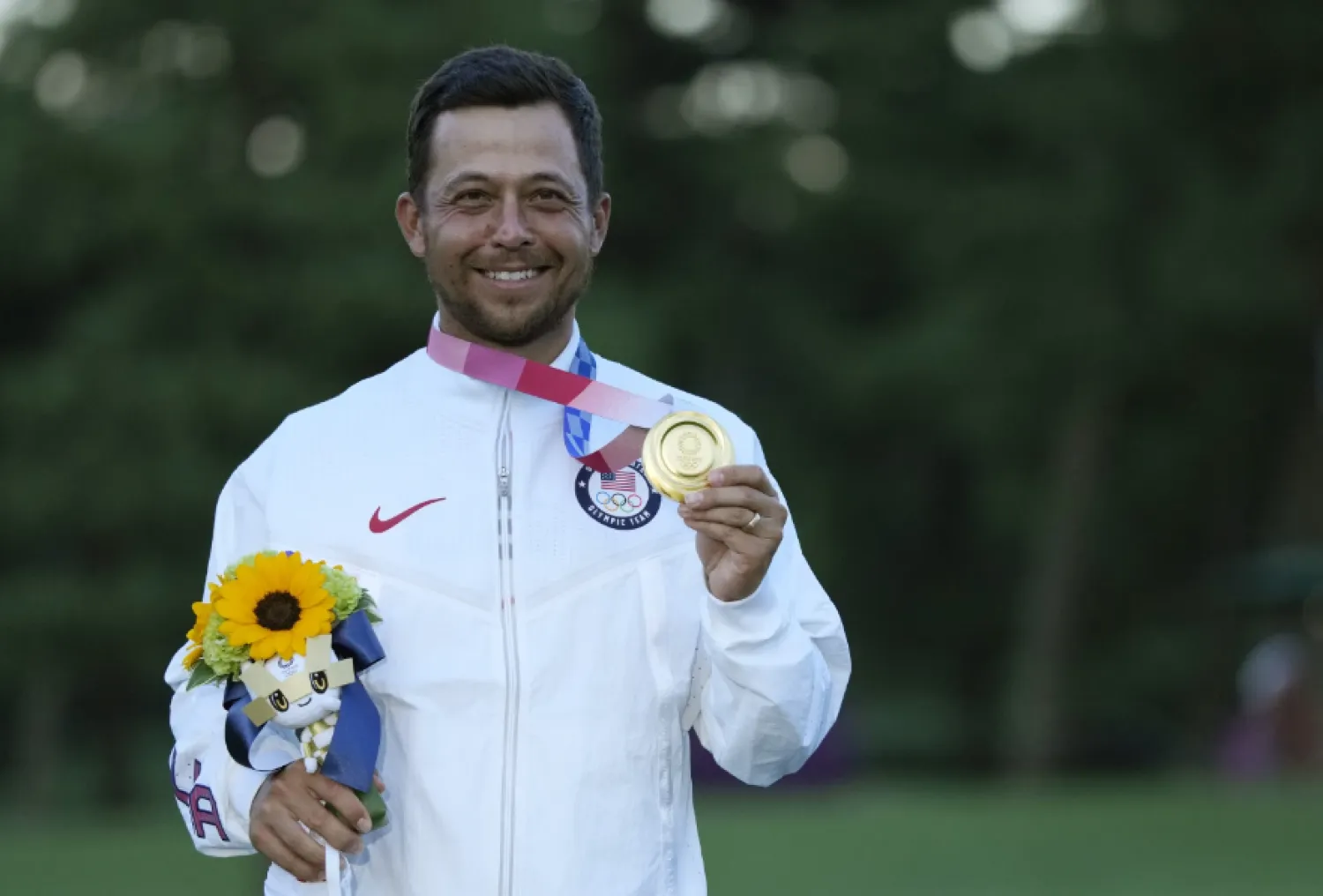One of the best indications that golf was starting to catch on as an Olympic sport came from a player who never even made it to the podium.
Rory McIlroy was part of a seven-man playoff for the bronze medal at the Tokyo Games, eliminated on the third of four extra holes. He said when it was over, “I never tried so hard to finish third.”
McIlroy was among those who skipped the Olympics when golf returned to the program in 2016 at Rio de Janeiro. He said then he wouldn't be watching golf, only “the stuff that matters.” The next time around, he was all in.
And he's not alone. Only two eligible players are sitting out the men's competition when it begins Aug. 1 at Le Golf National outside Paris.
One is Bernd Wiesberger of Austria, who withdrew from the Tokyo Games right after he moved into position to make it. The other is Cristobal del Solar of Chile, who plays on the Korn Ferry Tour and doesn't want to miss a week if it jeopardizes his chance to get a PGA Tour card.
In most cases, the competition was fierce just to get to the Paris Games, The Associated Press reported.
“Qualifying was my first goal this year,” defending gold medalist Xander Schauffele said. “It's a very hard team to qualify for on the US side.”
The Americans have two players in the top 10 who won't be going, including US Open champion Bryson DeChambeau.
Of course, there are no excuses for skipping this year. Rio de Janeiro carried the threat of the Zika virus. The Tokyo Games were postponed one year because of the COVID-19 pandemic, meaning no spectators, no opportunity for athletes to attend other events and daily coronavirus testing.
Still to be determined is the value of gold, silver and bronze.
Given the endless golf schedule, the silver claret jug from the British Open will be awarded just 11 days before the pursuit of a gold medal.
“For track and field, gymnastics, winning a gold medal from when you were a kid was the top of the top,” said Schauffele, who won his first major this year at the PGA Championship. "People ask me now about a major and a gold medal. Growing up, it was about watching the majors. Maybe in 50 years it will be different.
“But there's added emphasis on trying to win one,” he said of an Olympic gold. “It's starting to pull some of its own weight. And I imagine it will be pulling more and more.”
The gold medalists from Rio de Janeiro (Justin Rose and Inbee Park) and Tokyo (Schauffele and Nelly Korda) all have major championship hardware at home.
Schauffele and Korda will be among the contenders to give golf back-to-back gold medalists, a difficult task in golf regardless of the brand of trophy.
Scottie Scheffler remains the clear favorite everywhere he goes, already a six-time winner against the best fields in golf, including the Masters and The Players Championship. The gap between Scheffler and the rest of golf in the world ranking is a size not seen since the peak years of Tiger Woods.
“Playing for your country is always extremely exciting. Especially I think it will be extra special doing it on the Olympic stage,” Scheffler said. “It's also good bragging rights for people when they tell me golf's not a sport. I can say it's an Olympic sport.”
Korda is more of a mystery.
The American, who will be 26 when the women's competition begins, was unbeatable in March and April as she tied an LPGA record with five consecutive victories, including her second major at the Chevron Championship.
But then she took a 10 on one hole in the US Women's Open and shot 80, missing the cut. She missed another cut in Michigan, and then shot 81 in the KPMG Women’s PGA Championship and missed another cut in a major.
The Olympic ranking is based on the world ranking, and countries get a maximum of four players provided they are among the top 15 in the world.









